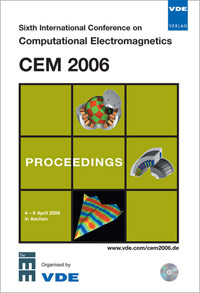The consideration of surrogate model accuracy in single-objective electromagnetic design optimization
Conference: CEM 2006 - 6th International Conference on Computational Electromagnetics
04/04/2006 - 04/06/2006 at Aachen, Germany
Proceedings: CEM 2006
Pages: 2Language: englishTyp: PDF
Personal VDE Members are entitled to a 10% discount on this title
Authors:
Hawe, G. I. (School of ECS, University of Southampton, U.K. and Vector Fields Ltd., Oxford, UK)
Sykulski, J. K. (School of ECS, University of Southampton, UK)
Abstract:
Optimization problems in electromagnetic design are typified by features which present difficulties to most deterministic search algorithms, e.g. the existence of multiple local minima. Genetic Algorithms (GAs), on the other hand, with their ability to search more globally, are better suited for exploring complicated objective function landscapes. The high computational cost of evaluating the objective function in such problems, however, means that direct use of a GA is often not feasible or impractical, due to the general requirement for a large number of objective function evaluations. Additional costeffective techniques must be used, with the aim to make the GA require fewer evaluations of the objective function. Techniques used include hybrid algorithms, GAs specially adapted for small population sizes, and simplifying the problem by removing irrelevant design variables. One technique, called surrogate modelling, is the focus of this paper.


